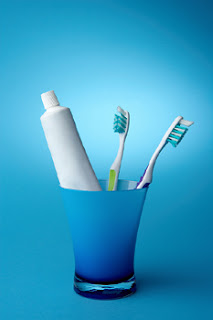Did you know February is National Dental Health Month? It’s a great time of the year to renew those resolutions about continuing to practice great dental hygiene. Today, we thought we would discuss the importance of preventative oral care. While most folks are familiar with traditional healthy-conscious practices such as eating well and exercising regularly, lesser-known are the benefits that great oral hygiene provides to your cardiovascular health.
Here are a few tips to help you continue taking care of those pearly whites and in the process, your heart.
*Brush and floss every day to remove the plaque that can lead to cavities. Flossing daily removes food debris that your toothbrush simply cannot reach.
*Replace your toothbrush on a regular basis. You should replace your toothbrush every three to four months or after a cold to prevent re-infection. Please remember to use a soft toothbrush so that you don’t wear off the enamel of your teeth.
*Visit our office regularly. The American Dental Association recommends you visit us every six months (or as recommended) for regular checkups and cleanings. Fluoride treatments twice a year will help prevent tooth decay.
Each February, we focus on the preventive oral care of our patients. Have you visited us in the past six months? If not, it’s time to give us a call and schedule an appointment!









